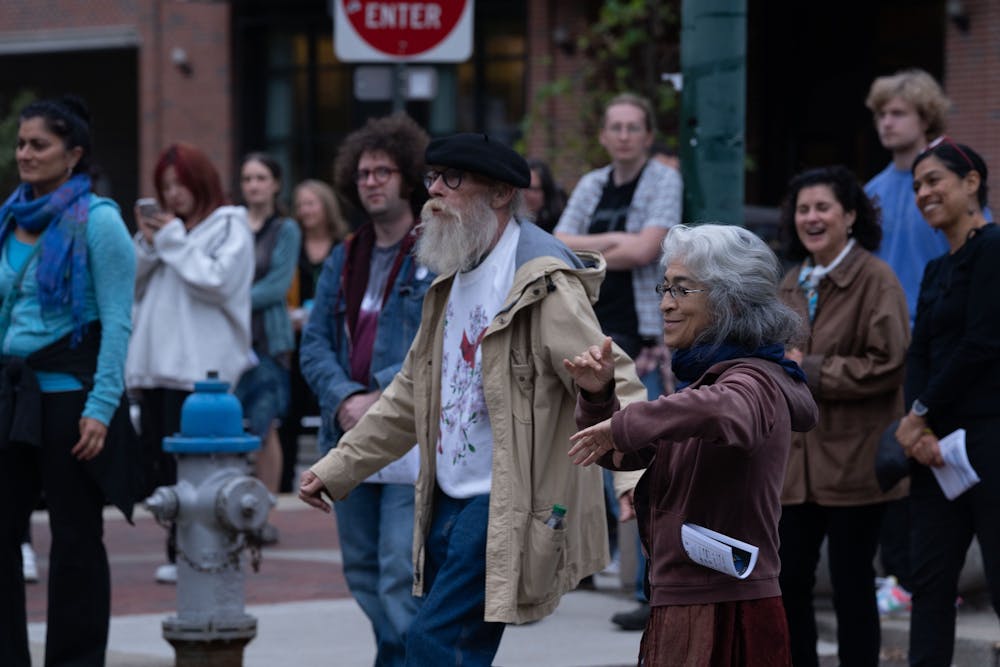I’ve had professors who say journalists look for the bad. Every time I hear that — and it’s been multiple times at this point — I wish I’d had the nerve to speak up and say something in class.
So, maybe this is my chance.
For me, I don’t think a journalist should actively look for that — the bad, I mean. Sure, if you stumble across a wrongdoing, it needs to be covered. That is a necessary service in any community. But when you’ve predetermined that, at the fork in the road, the path you’ll take — without fail — involves looking only for the negative?
I can’t accept that. Not for my journalistic career, anyway. And I hope I never will.
Related: [People of Lotus: Meet two performers of the 2022 music and arts festival]
At the 29th Annual Lotus World Music and Arts Festival I felt — for the first time in a long time — I was just breathing. Taking it all in. I felt like I was somehow at the epicenter of calmness, even when I was surrounded by bright, unparalleled energy, complete with strobe lights, amplifiers, screeching concertgoers, wailing singers and bass reverberating through every bone in my body.
I was seeing clearly.
The event itself brought so much joy to so many people. And, with our coverage, I hope we conveyed that happiness.
Even with all this celebration, though, there are still aspects of Lotus that hit me with a tinge of sadness, like how the festival relies heavily on older generations to support it — and there’s fear that the younger ones won’t want to help it continue.
Jill Bird, Bloomington resident and artist hospitality committee member, has volunteered at Lotus for 25 years. She feels the festival is struggling to grow and reach more people, even with kids scattered throughout the festival’s grounds.
“We just need new blood,” Bird said. “If it’s going to have a future, that has got to happen.”
I didn’t set out on the streets of downtown Bloomington in late September looking for bad news, though. I set out to cover the Lotus Festival — in all its nuances and complexities — with whatever emotions and stories that came about from its attendees. And, from what I learned, a festival that brings so many people together is an exercise in exactly that: complexity.
The bad news? Fear that the next generations will have no desire to continue this Bloomington tradition.
The good news? There are people still willing to try and put on a fantastic festival every year.
Related: [Lotus in the Meadow kicks off weekend of events]
So, to all my professors who have said they actively look for the bad, maybe don’t do that. And maybe don’t say that. As a fellow journalist who, yes, is wildly inexperienced compared to my professors, I just can’t believe that is the most effective lesson to share with students.
Because, when I was out in the field and letting my mind be as open as it could be, which is what I believe a journalist should strive for, I saw life in all its complexity. It’s like the festival was a living, breathing human being that has its struggles, but is also fighting year in and year out to put on an impressive show.
I’m glad I think the way I do. I may never be known as a journalist who always busts the bad guys or conducts months-long, groundbreaking investigations. But I will promise to never just look for the negative. The world is so much more complex and interesting than that.
Your world is big, kids, and you deserve better advice than “look for the bad.”




